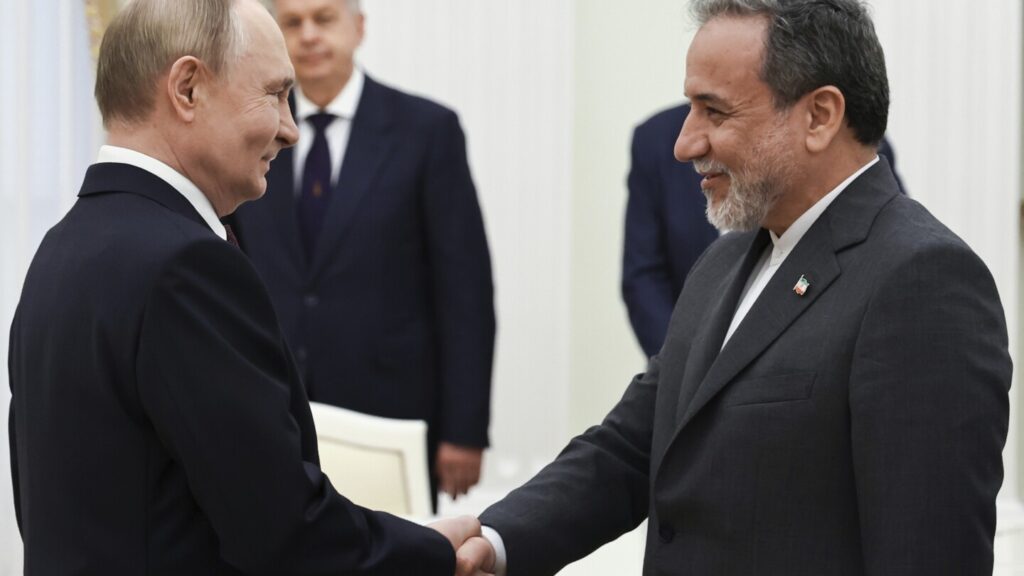
MOSCOW – The escalating conflict between Iran and Israel has spotlighted Russia’s complex role in Middle Eastern geopolitics. As the United States joined Israel in recent strikes on Iran’s nuclear facilities, Russia’s response was swift yet measured, raising questions about its waning influence in the region.
Immediate Impact of Recent Strikes
Moscow’s U.N. ambassador denounced the U.S. actions as opening “a Pandora’s Box,” while Iran’s top diplomat, Abbas Araghchi, sought support from President Vladimir Putin. However, Putin’s response was limited to condemning the strikes as “unprovoked aggression” without offering military assistance.
“This muted response is likely to disappoint Iran and reflects Russia’s diminished influence,” analysts suggest.
Key Details Emerge on Russia-Iran Relations
Russia has strengthened ties with Iran since the 2022 invasion of Ukraine, with Tehran providing drones crucial to Moscow’s military efforts. In January 2025, a strategic partnership agreement was signed to enhance economic and military cooperation.
However, this agreement stops short of a mutual defense pact. Renad Mansour of Chatham House notes, “Iran wanted to rely on Russia, but the support has been less than expected.”
Challenges in Military Support
Russia’s reluctance to provide air defenses to Iran has been a point of contention. Kremlin spokesman Dmitry Peskov stated that Russia supports Iran but is cautious about military commitments.
“Russia itself needs these weapons for its war in Ukraine,” says Arman Mahmoudian of the Global and National Security Institute.
Moscow’s Balancing Act in the Middle East
Russia’s diplomatic tightrope involves maintaining relations with both Iran and Israel. The latter remains neutral in the Ukraine conflict, wary of antagonizing Russia due to its significant Russian-speaking population.
Putin acknowledged the delicate balance, stating, “Israel is home to nearly 2 million people from Russia and other former Soviet nations.”
U.S.-Russia Relations in the Spotlight
Russia’s actions are also influenced by its evolving relationship with the United States. Under President Donald Trump, U.S.-Russia communications have resumed, but tensions over Iran could alter this dynamic.
“If Putin were to annoy Trump over Iran, Trump may impose new sanctions,” warns Holger Schmieding of Berenberg bank.
New Complexities and Opportunities
The Iran-Israel conflict presents both challenges and opportunities for Moscow. Rising oil prices could benefit Russia’s economy, while the conflict distracts from the Ukraine war.
However, Russia’s ambition to mediate the conflict has been met with skepticism. Ksenia Svetlova of Chatham House argues that Russia lacks leverage over Iran.
Future Implications and Regional Impact
The war in Ukraine has stretched Russia’s resources, affecting its influence in the Middle East. Despite this, Russia is negotiating with Syria’s new government and other regional players.
“Russia’s inability or unwillingness to assist Iran raises doubts about its reliability,” Mahmoudian notes.
As the situation unfolds, regional powers like Egypt and Turkey may reconsider their alliances with Russia, questioning its dependability as a strategic partner.
While Moscow navigates these geopolitical complexities, the long-term impact on its Middle Eastern influence remains uncertain.
___
Davies reported from Manchester, England. Kirka reported from London. Associated Press writers Melanie Lidman in Tel Aviv, Israel, and Edith M. Lederer at the United Nations contributed to this report.







